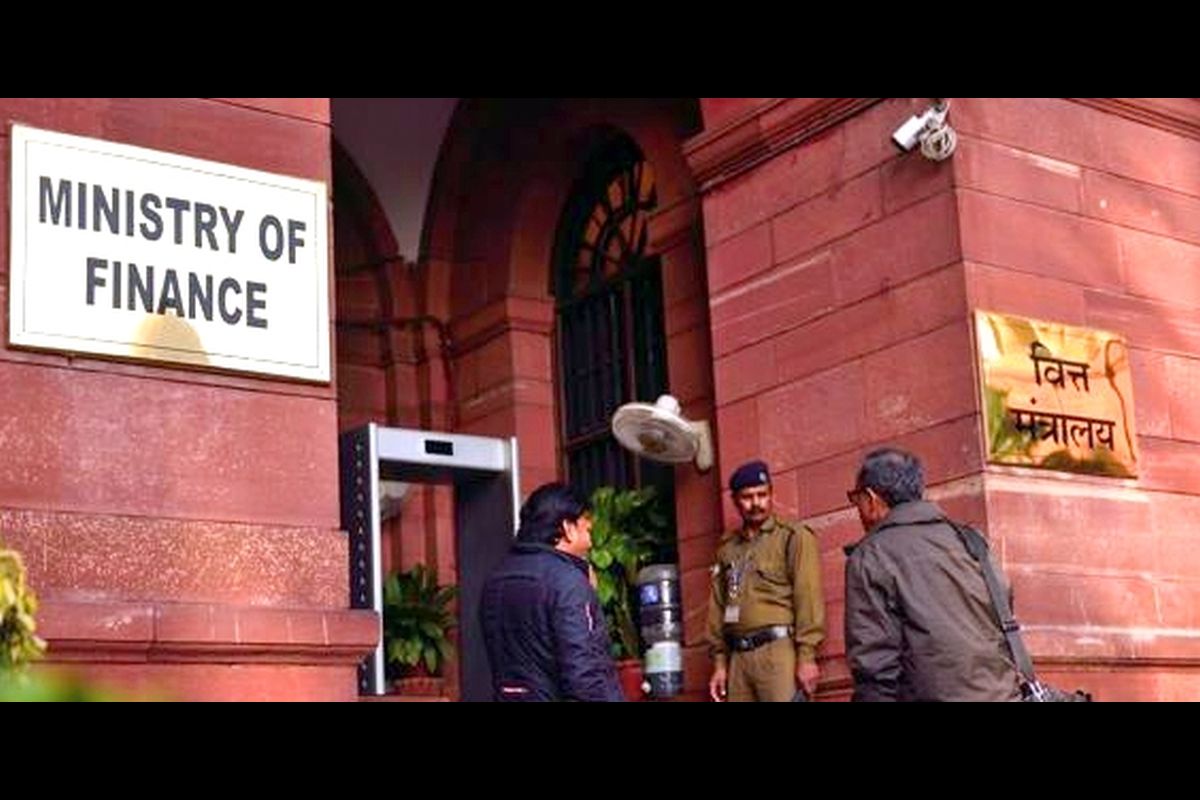GDP Growth
India’s economic trajectory, as outlined by Finance Minister Nirmala Sitharaman, paints a picture of resilience and potential amidst global uncertainties.
As per amendments to the Stamp Act, 1899 introduced in the The Finance Bill, 2019, the government decided to introduce a centralised system of stamp duty with a unified rate for all financial securities transactions.

Ministry of Finance. (File Photo: IANS)
The government has deferred implementation of a simplified stamp duty collection process for listed securities by three months in the wake of disruptions caused by the Covid-19 pandemic.
As per amendments to the Stamp Act, 1899 introduced in the The Finance Bill, 2019, the government decided to introduce a centralised system of stamp duty with a unified rate for all financial securities transactions. The said changes were to become effective from January 9 first but it was later shifted to April 1.
Now through a gazette notification, the government has shifted its implementation to July 1 to give more time to market participants to shift to the changes hit hard by the coronavirus outbreak.
Advertisement
As per the amendments and the new notification, stock exchanges will now collect stamp duty for trading in securities at a unified rate from July 1 and deposit the proceeds with the Centre which will then divide it among states where the trade took place.
At present, market participants collect stamp duty at rates fixed by the state where the trade takes place and deposit it with the local government. This created a complex system with multiple tax rates and differing regulations in different states posing challenge to settle deals.
Under the amended provisions while stock exchanges or clearing agencies would collect duty on securities transactions (sale and purchase of shares) and deposit it with the centre, for transactions that don’t happen on the stock exchange (off market transactions) platform, depositories would collect stamp duties.
Under the unified stamp duty system the rate of duty has been proposed at 0.0001 per cent for transfer and reissue of debentures while rates varies from 0.0005 per cent to 0.015 per cent for other financial securities transactions rated to shares, free tires or derivative products.
The government decided to amend the stamp act as differential rates of stamp duty on securities created confusion and resulted in brokerages choosing their place of incorporation to destinations like Daman and Goa where the stamp duty rate is lower.
At present, Maharashtra collects a stamp duty of 0.01 per cent for delivery-based trades which is double as compared to Daman’s 0.005 per cent slab. Bringing in uniform rate will put an end to such practices.
Advertisement